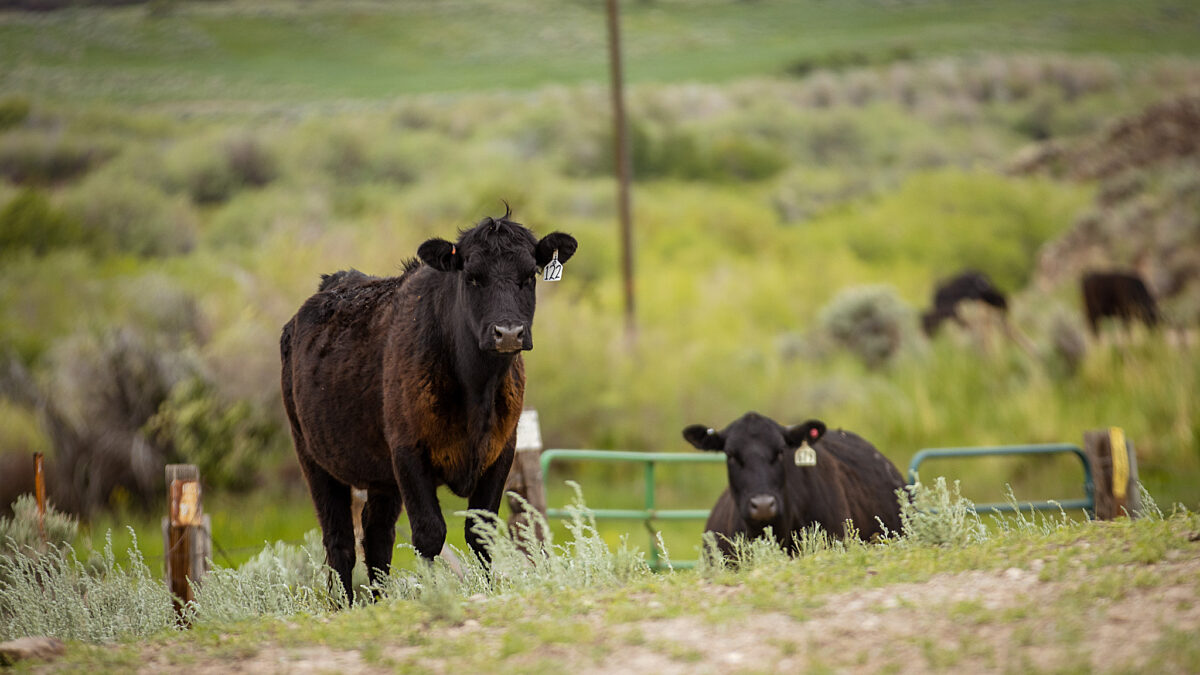Farm Bureau Asks for More Flexible Livestock Hauling Rules
TOPICS
TransportationErin Anthony
Director, Communications

photo credit: AFBF Photo, Dylan Davidson
The American Farm Bureau Federation is asking the Department of Transportation to give livestock haulers flexibility in meeting certain hours of service requirements to better address the unique needs of the live animals they’re transporting, while still prioritizing road safety.
Farm Bureau’s comments to DOT and the Federal Motor Carrier Safety Administration were submitted in response to a petition filed by the organization and several others asking that DOT allow drivers who complete fatigue management training, have a sufficient safety record, and are willing to follow certain documentary requirements to drive 15 hours during a 16-hour work day and rest the currently required 10 hours. Current rules limit drive time to 11 hours and limit on-duty hours to 14.
“Farm Bureau believes that the 11-and 14-hour rules were not drafted with livestock haulers in mind and thus do not accommodate the unique character of their loads and nature of their trips. Livestock hauling is like no other, and, therefore, requires flexibility due to the many circumstances that go along with hauling live animals,” the group said.
While some livestock hauls from the ranch to the market, and from the market to the next destination, can be completed in the currently allowed 11 hours, several cannot, making the additional four hours of drive time necessary to complete the longer hauls between where cattle are born, fed and harvested, Farm Bureau explained.
Allowing additional drive time would benefit the animals because they rely on a moving trailer to keep them comfortable. In fact, industry guidelines mandate that drivers avoid any stops while hauling livestock, especially in warmer weather, as the trailers are designed to cool the animals down while in motion.
“Clearly, the majority of livestock cannot withstand the stress of 10 hours stopped without airflow or the added time on the trailer necessitated by such an extended rest,” Farm Bureau said.
Unloading the animals for a 10-hour break isn’t feasible either. First, there are very few livestock rest areas along the interstate system. Second, there’s potential for injury to the animals during the unloading and reloading processes. Third, the comingling of animals at a rest stop presents severe biosecurity risks. Drivers who reach driving time limits while hauling animals will face a difficult decision: comply with animal welfare laws and guidelines or comply with HOS rules, Farm Bureau pointed out.
As the exemption petition states, by completing extra training and conducting trip planning activities, livestock haulers can use the extra drive time in an equally safe manner. Farm Bureau also believes the current HOS rules do not take full advantage of modern fatigue management research and the experience of other countries showing that on-duty time limits alone are not optimal tools for managing operator fatigue in the livestock hauling industry.
In granting the exemption, DOT would be bringing HOS rules up to date with current approaches to fatigue management and aligning those rules with Secretary Chao’s performance-based, data-driven approach for overseeing the safety of the nation’s transportation systems and operators.
“Under this exemption, livestock haulers would be able to more appropriately manage their own rest and work schedules under fatigue management measures outlined in the petition, to ensure both the well-being of their livestock and the safe operation of their commercial motor vehicles,” Farm Bureau said.
Along with Farm Bureau, the petition was signed by the National Cattlemen’s Beef Association, Livestock Marketing Association, American Beekeeping Federation, American Honey Producers Association and the National Aquaculture Association.
State Farm Bureaus and others are encouraged to submit comments in support of the petition by March 8. The docket and directions on how to comment can be found here.
Trending Topics
VIEW ALL